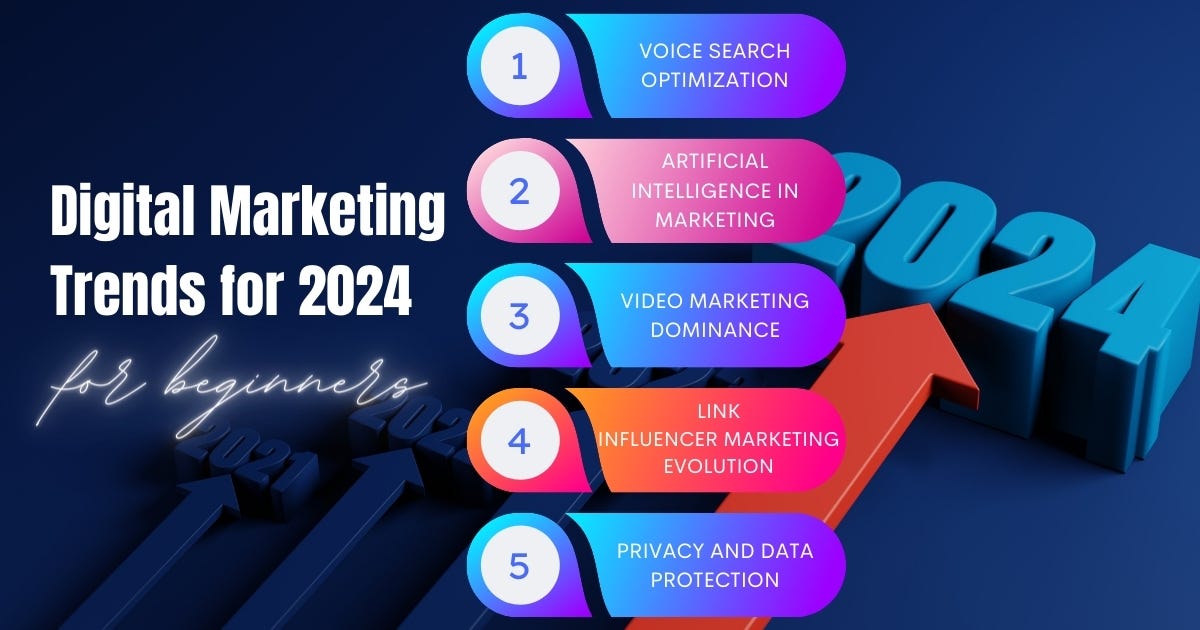Digital marketing has evolved dramatically over the past decade, transforming from a niche practice into a cornerstone of modern business strategy. As we move further into 2024, the landscape of digital marketing continues to shift with emerging technologies, changing consumer behaviors, and evolving platforms. Understanding these changes and adapting strategies accordingly is crucial for businesses aiming to stay competitive. This article explores the latest trends and strategies in digital marketing, providing insights on how companies can navigate this dynamic environment.
1. The Rise of Artificial Intelligence and Machine Learning
Artificial intelligence (AI) and machine learning are at the forefront of digital marketing innovation. These technologies enable more sophisticated data analysis, which allows businesses to better understand customer behavior and predict future trends. AI-driven tools can optimize ad placements, personalize content, and enhance customer service through chatbots and virtual assistants.
For instance, AI algorithms can analyze vast amounts of data to determine which types of content resonate most with specific audience segments. This enables marketers to create highly targeted campaigns that are more likely to engage and convert. Additionally, machine learning models can continually refine their strategies based on performance data, leading to more efficient and effective marketing efforts.
2. The Growing Importance of Video Content
Video content remains a dominant force in digital marketing. With platforms like YouTube, TikTok, and Instagram Reels gaining immense popularity, businesses must prioritize video in their content strategy. Videos are not only engaging but also offer a way to convey complex messages quickly and effectively.
In 2024, the emphasis on short-form video content is particularly strong. These brief, attention-grabbing videos are perfect for social media platforms where users scroll quickly. Brands can leverage short-form videos for product demonstrations, behind-the-scenes looks, and customer testimonials. Additionally, live streaming continues to grow, providing an opportunity for real-time engagement and interaction with audiences.
3. Personalization and Customer Experience
Personalization has moved from a luxury to a necessity in digital marketing. Consumers now expect brands to deliver tailored experiences that meet their individual needs and preferences. This goes beyond simply addressing customers by their first names; it involves providing relevant content, recommendations, and offers based on their behavior and past interactions.
Advancements in data analytics and AI have made it easier to deliver personalized experiences. Marketers can segment their audience more precisely and use this data to create customized content and offers. For example, an e-commerce site might use browsing history to suggest products that align with a user’s interests. Personalization not only enhances the customer experience but also drives higher engagement and conversion rates.
4. Privacy and Data Security
As digital marketing becomes more data-driven, concerns about privacy and data security have become more prominent. With regulations like the General Data Protection Regulation (GDPR) in Europe and the California Consumer Privacy Act (CCPA) in the U.S., businesses must be vigilant about how they collect, store, and use customer data.
Transparency and trust are key in navigating these challenges. Marketers should prioritize ethical data practices and ensure compliance with privacy laws. Clearly communicating data collection practices and offering users control over their information can help build trust and strengthen customer relationships.
5. The Power of Influencer Marketing
Influencer marketing has matured and continues to be a powerful tool for brands. However, the focus is shifting from partnering with celebrities to collaborating with micro-influencers and niche content creators. These influencers often have highly engaged and loyal followings, making them effective advocates for brands.
In 2024, successful influencer marketing campaigns are characterized by authenticity and alignment with the influencer’s personal brand. Brands are looking for influencers who genuinely connect with their products or services, resulting in more credible and effective endorsements.
6. Voice Search and Conversational Marketing
Voice search is becoming more prevalent with the rise of smart speakers and voice assistants. Marketers need to optimize their content for voice search by focusing on natural language and conversational keywords. This involves understanding how people phrase their queries when speaking versus typing.
Conversational marketing, which includes chatbots and live chat, is also gaining traction. These tools facilitate real-time interactions with customers, providing immediate assistance and enhancing the user experience. By integrating conversational marketing strategies, businesses can address customer inquiries more efficiently and foster stronger relationships.
7. Social Commerce and Shoppable Content
Social commerce, the integration of e-commerce and social media, is transforming the way consumers shop online. Platforms like Instagram and Facebook are increasingly incorporating shoppable features, allowing users to purchase products directly from posts and stories.
In 2024, social commerce is expected to grow, with more brands leveraging these features to drive sales. Creating engaging shoppable content and optimizing social media profiles for transactions can enhance the customer journey and boost conversion rates.








+ There are no comments
Add yours